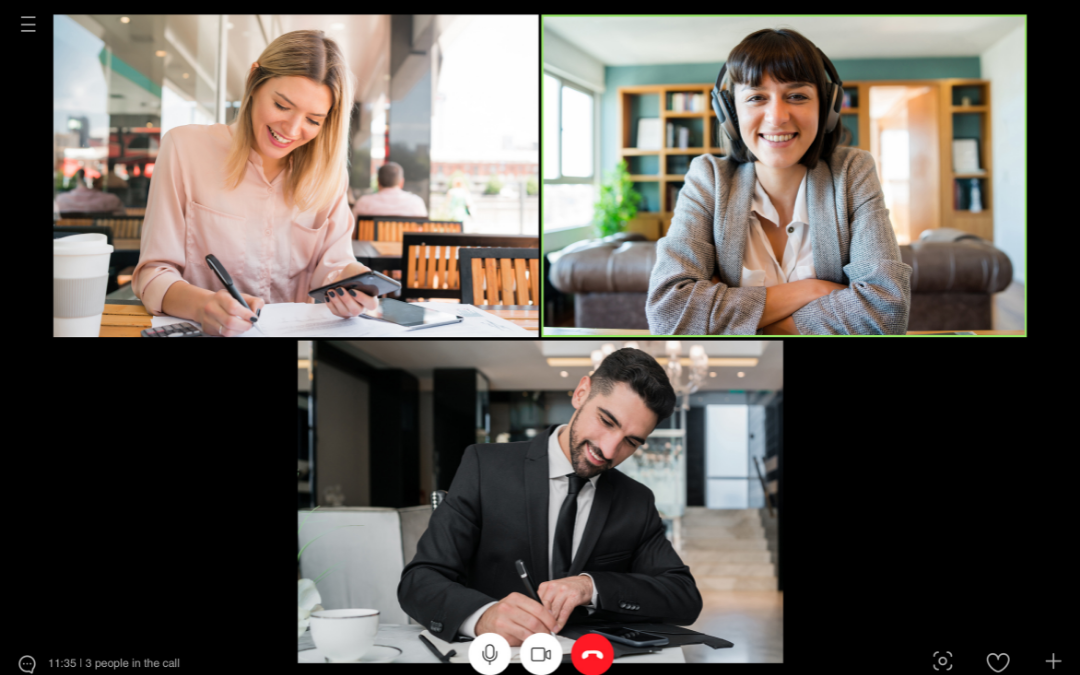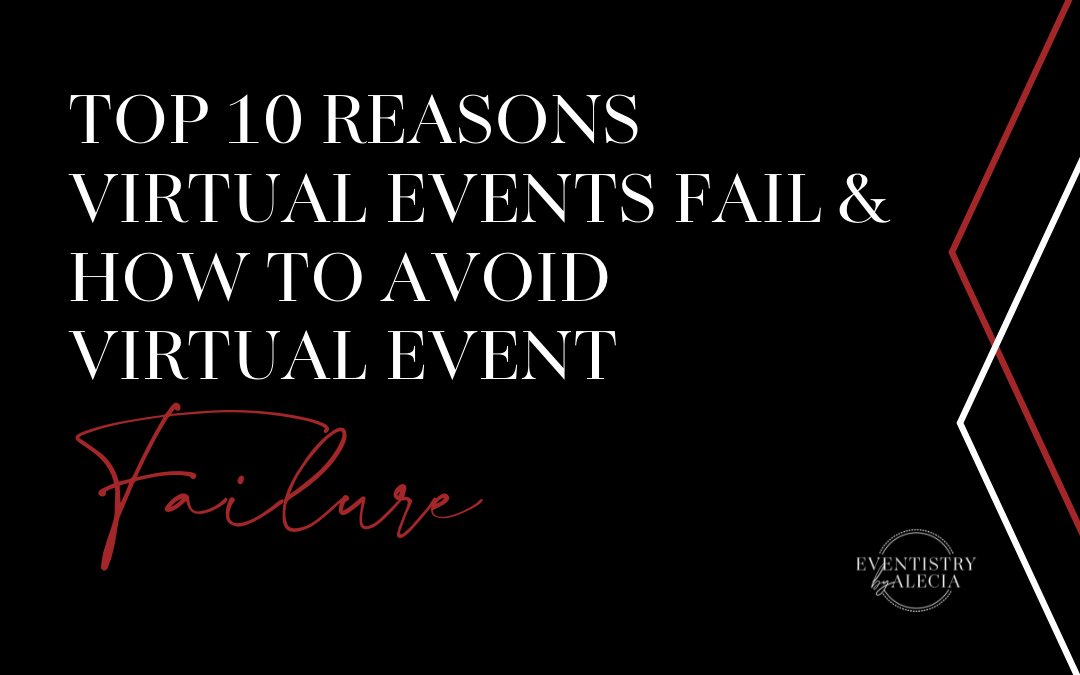There’s a new era of events on the horizon. While the pandemic may be fading and live events are making a comeback, the majority of organizations are still going to be offering virtual events as a major part of their marketing or growth strategy. That said, one of the questions we get most from our clients and connections is, “What are the reasons virtual events fail?” It’s a fair question. Events—live, virtual, or hybrid—are a major investment, with major potential for ROI when planned effectively. So, we’ve compiled the top ten reasons we think virtual events fail, after working with hundreds of clients who have come to us after not launching successful virtual events on their own. Ready to take some notes?
#1 You’re Offering a Webinar, Not an Event
This is something our EBA team has seen a lot over the past year and a half of the virtual event boom. It’s one of the top reasons virtual events fail—and the good news is it’s easily fixed. If you’re having speakers simply talk about their slides with no audience interaction, that’s a webinar, friends. It’s not a virtual event. With the advent of all sorts of virtual event engagement opportunities, attendees are expecting more than a Zoom call or a webinar when you advertise a virtual event. So, make sure you’re giving that to them! Which leads us to our next point…
#2 You’re Not Focusing Enough on Engagement & Sponsorship Opportunities
Where do you usually gain the most ROI from live events? Sponsors and connections made. Right? Now, the same goes for virtual events. If you’re not offering a robust sponsorship kit or don’t allow even one opportunity for attendees to be a part of the meeting, it’s not going to work. If you need some inspiration for designing a virtual sponsorship kit, check this out—our all-in-one sponsorship system ready for action.
#3 Your Marketing Needs a Boost
You could be doing all the things right when it comes to planning virtual events. But if you’re not marketing effectively, none of the planning matters because you won’t have anyone in the audience. You need to create a marketing campaign that offers a variety of messaging that really intrigues your target audience. We’ve marketed hundreds, if not thousands of events. Alecia can help you with your marketing strategy with a VIP strategy call.
#4 You Didn’t Test Your Tech
If you run into technical issues during your virtual event, you’re not alone. Nearly 40% of marketers have experienced tech problems during an event. While this is fine, your chance of experiencing tech issues is exponentially higher if you didn’t test first. At EBA we do test days before every single virtual event to make sure everyone is prepared. And when (not if) they happen, we’re prepared with a Plan B. Smooth tech is key for attendee experience for virtual events!

#5 Your Strategy Wasn’t Concrete
Every successful business venture starts with a solid strategy. Events are money makers, brand builders, connection generators—they have the opportunity to create BIG opportunities for your business. But not without a solid strategy. Need help creating a strategy that works? Check out our recent blog for tips.
#6 Your Sessions Are Too Long, Or They’re Offered at the Wrong Time
Unless you’re offering killer content, most of your attendees start to lose focus after 10-minutes. Quick TED Talk-style sessions are a great way to keep engagement high with quick fun movement breaks after every session. Maybe led by sponsors for extra income! Also, if you’re offering a weekend session for a professional development conference, that probably won’t work. Make sure your event timing lines up with target audience personas.
#7 You’re Not Providing Real Value
What does your audience want? The top two reasons attendees register for a virtual event are education and networking opportunities. Have you surveyed your attendees to determine what their priorities are and why they’re registering? If you haven’t you may be offering content that doesn’t serve them,
#8 You Didn’t Prepare Your Speakers
Speaking at a live conference or meeting and speaking at a virtual event, while they may seem the same, are wildly different. Lots of professional speakers thrive off seeing those smiling faces in the audience but may freeze when they’re staring at themselves on a screen. Plus, at a live event, they usually have a technology partner or audio-visual team to hook them up and test their presentation for them. Even with support in this area, they need to have some mastery of the tech they’re using for the presentation virtually. This is why our EBA team offers virtual speaker training for all our virtual event clients—even for the most seasoned event speakers.

#9 Your Platform Doesn’t Align with Your Virtual Event Goals
Our number one tip for virtual event planners is to design your strategy and event goals BEFORE choosing your virtual event platform. It’s much easier to design an event and find a platform that checks all your requirements than it is to design an event around limited virtual event platform capabilities. The plan always comes before the execution for a live event, right? Don’t forget to migrate those principles to your virtual event strategy.
#10 You Didn’t Appoint a Strong Leader
Let’s be honest, virtual events are still so new for so many people. Now, when you have a committee of people appointed to help plan a virtual event, and no one takes charge, it’s obviously going to fall apart. You need a strong, versatile leader in charge of project management for your virtual event. If you don’t think you have that individual in place, our EBA team can help make a difference. Let’s chat.
Plan a Virtual Event That Will Flourish, Not Fail
As you can see, there are a lot of reasons virtual events fail. But if you focus on avoiding these common mistakes, and use the resources linked, you’ll be leagues ahead of your competition in no time! Need some extra help planning a virtual event that will flourish, not fail? Download The Ultimate Virtual Event Checklist for our step-by-step guide to planning a virtual event that will generate BIG impact and ROI.




